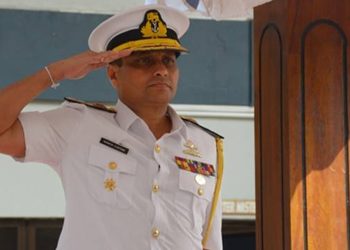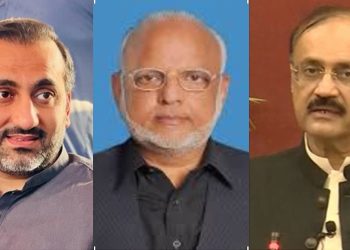The Russian National Day reception in Islamabad turned significantly into a cultural ethos with the soulful resonance of strings — balalaika and violin — in a spectacular display of musical diplomacy.
Duo “Bogema,” comprising the exceptionally talented Russian musicians Evgenii Soprunov and Kristina Kochmarik, brought to life the spirit of Russia through a seamless medley of folk traditions, classical grandeur, and global melodies. Their performance was not just entertainment; it was a cultural bridge, gracefully spanning history, sentiment, and shared human experience.
From the lively rhythms of “Kalinka Malinka” and the haunting beauty of “Katyusha,” to the cinematic echoes of Hans Zimmer and heartfelt compositions remembering the sacrifices of the Great Patriotic War (1941–45), the evening offered a rich mosaic of Russian cultural depth. Each note struck by Soprunov’s balalaika, a quintessential Russian folk instrument, and each sweep of Kochmarik’s violin bow painted a vivid portrait of a nation that values both its proud history and its evolving global identity.
Celebrated annually on June 12, Russia Day commemorates the adoption of the Declaration of State Sovereignty of the Russian Soviet Federative Socialist Republic in 1990 — a defining moment that marked the country’s stride towards modern statehood. Yet beyond its political significance, the day has become an occasion for showcasing the cultural soul of Russia to the locals in Islamabad. In an era where political narratives often overshadow people-to-people connections, events like these remind us that art remains a profound vessel for empathy, understanding, and collaboration.
The musical performances of Duo Bogema reflected a deep reverence for tradition as well as a contemporary openness. Russian folk songs stirred nostalgia and national pride, while international hits and classic rock and roll medleys evoked joy and universality. The segment dedicated to the Great Patriotic War was particularly moving — a tribute to resilience and collective memory that resonated across generations and borders.
In Pakistan, where cultural diplomacy plays a key role in foreign relations, such events foster a deeper appreciation for the nuances of international partnerships. Russia and Pakistan, despite historical complexities, have steadily nurtured ties in trade, defense, energy, and education. Yet, it is cultural engagement, through music, film, literature, and dialogue, that strengthens the emotional fabric of bilateral relations. It humanizes diplomacy and opens doors that formal negotiations often cannot.
Russia’s cultural diplomacy is not a new strategy; it is a tradition rooted in centuries of artistic excellence. From Tchaikovsky to Tolstoy, from the Bolshoi Ballet to Siberian folk ensembles, Russia has always wielded soft power with finesse. The performance by Duo Bogema in Islamabad is a continuation of that legacy — a reaffirmation that music, with its timeless allure, speaks where words may falter.
As global tensions flare in different corners of the world, and mistrust often permeates international discourse, cultural encounters offer a sanctuary of commonality. Russian Day 2025 in Islamabad exemplified how mutual respect, appreciation for heritage, and the universal language of music can nurture not only bilateral goodwill but also broader regional harmony.
In celebrating Russia Day through music and cultural expression, we are reminded that diplomacy thrives not only in the corridors of power but also on the stage, through the strings of a balalaika and the bow of a violin. Let this harmony echo louder in our shared future.































